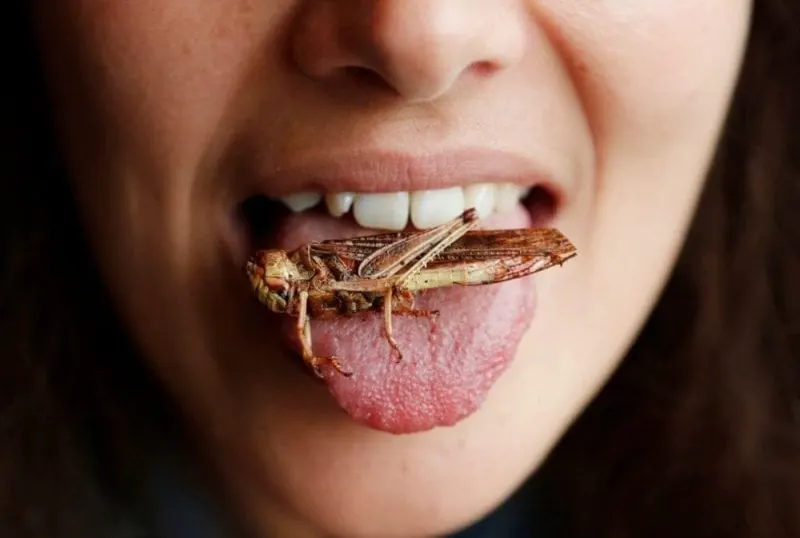To feed billions more people in coming decades, bugs will likely be on the global menu
To feed billions more people in coming decades, bugs will likely be on the global menu


Filling in the gaps in the world’s food web requires unlearning some tastes and preferences.
Consider the insect. Around 1,900 species are eaten around the world, according to the FAO. The cuisine of Oaxaca, arguably Mexico’s most complex and delicious, features fried chapulines (grasshoppers) seasoned with lime, chilies and salt and rolled into a fresh corn tortilla. Drinkers in rural Thailand snack on deep-fried, thumb-sized beetles; those working the fields of southern Africa prefer chubby mopane worms. Around 2bn people choose to eat insects on a regular basis. The rest of the world does so unknowingly, and to a lesser degree, while eating other things.
Insects convert nutrients and water into protein far more efficiently than more commonly consumed animals. Raising them does not require land-clearing, releases very little greenhouse gas and can be done alongside other crops—another bit of gap-filling. They can be fed on organic waste, reducing the flow of waste into landfills.
…
Fifty years ago, most Western diners looked askance at eating raw fish; today you can get sushi at supermarkets. A number of insect-food startups have been garnering a modest amount of investment hoping for a similar change in taste.
This is an excerpt. Read the original post here.

 | Videos | More... |

Video: Nuclear energy will destroy us? Global warming is an existential threat? Chemicals are massacring bees? Donate to the Green Industrial Complex!
 | Bees & Pollinators | More... |

GLP podcast: Science journalism is a mess. Here’s how to fix it

Mosquito massacre: Can we safely tackle malaria with a CRISPR gene drive?

Are we facing an ‘Insect Apocalypse’ caused by ‘intensive, industrial’ farming and agricultural chemicals? The media say yes; Science says ‘no’
 | Infographics | More... |

Infographic: Global regulatory and health research agencies on whether glyphosate causes cancer
 | GMO FAQs | More... |

Why is there controversy over GMO foods but not GMO drugs?

How are GMOs labeled around the world?

How does genetic engineering differ from conventional breeding?
 | GLP Profiles | More... |

Alex Jones: Right-wing conspiracy theorist stokes fear of GMOs, pesticides to sell ‘health supplements’




 Viewpoint — Fact checking MAHA mythmakers: How wellness influencers and RFK, Jr. undermine American science and health
Viewpoint — Fact checking MAHA mythmakers: How wellness influencers and RFK, Jr. undermine American science and health Viewpoint: Video — Big Solar is gobbling up productive agricultural land and hurting farmers yet providing little energy or sustainabilty gains
Viewpoint: Video — Big Solar is gobbling up productive agricultural land and hurting farmers yet providing little energy or sustainabilty gains Trust issues: What happens when therapists use ChatGPT?
Trust issues: What happens when therapists use ChatGPT? Fighting deforestation with CO2: Biotechnology breakthrough creates sustainable palm oil alternative for cosmetics
Fighting deforestation with CO2: Biotechnology breakthrough creates sustainable palm oil alternative for cosmetics California, Washington, Oregon forge immunization alliance to safeguard vaccine access against federal undermining
California, Washington, Oregon forge immunization alliance to safeguard vaccine access against federal undermining 30-year-old tomato line shows genetic resistance to devastating virus
30-year-old tomato line shows genetic resistance to devastating virus The free-range chicken dilemma: Better for birds, but with substantial costs
The free-range chicken dilemma: Better for birds, but with substantial costs ‘You have to treat the brain first’: Rethinking chronic pain with Sanjay Gupta
‘You have to treat the brain first’: Rethinking chronic pain with Sanjay Gupta
